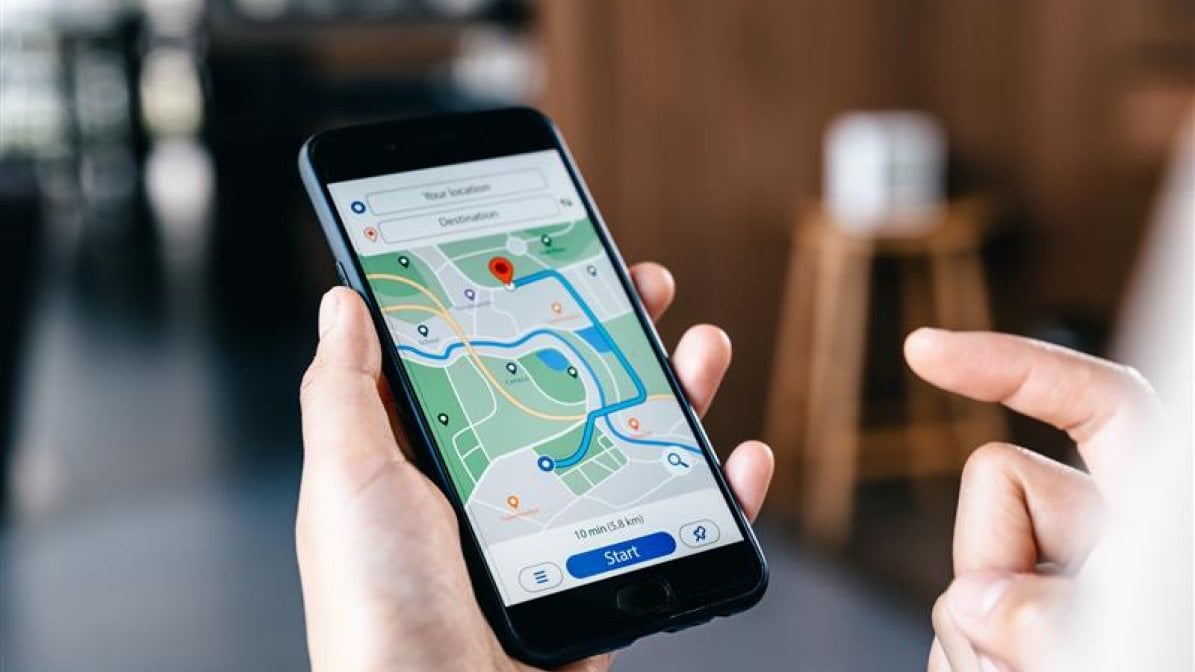
Trams
Only some cities in the UK have trams. They travel along roads but have set stops (like trains). Travelling and buying tickets works the same as buses.
Getting a good idea of how transport works in the UK will make your time here easy and stress-free, meaning you can focus on having the best experience possible. You’ll also discover all the travel discounts available to students, helping you save money and reduce your cost of living.
Getting around your local area every day is a big part of student life. Every major city in the UK offers a variety of transport options, including:
As the most common form of public transport, you’ll almost always have bus travel as an option. You’ll find bus routes going to different parts of the city or out into the surrounding areas. In many cases, there’ll be bus routes connecting your accommodation to university campuses or the city centre.
Each city’s local bus networks are separate, so you won’t be able to use a bus ticket from one city in another city.
Note: In some cities, multiple companies manage different parts of the bus network. Many cities have a ‘metro’ or ‘day pass’ ticket that allows you to travel with all providers, but make sure to check this in advance.
In many larger cities, you can just tap a contactless bank card or smartphone and be charged accordingly.
There’s a variety of ticket types depending on how many times you’re travelling:
In some cases, you can get passes that last for the academic term or year. You might be asked what your destination is when you buy a bus ticket, as the price is sometimes set according to the distance of your journey.

Only some cities in the UK have trams. They travel along roads but have set stops (like trains). Travelling and buying tickets works the same as buses.
Many of the UK’s major cities have their own local train networks. In smaller cities, there’ll often only be one or two stations which connect the city to other parts of the region or the UK, so you won’t be able to use trains to travel within the city. Some universities in the UK even have their own train station, or one close by.
Some cities – London, Glasgow, Liverpool and Newcastle – also have underground train systems that link to overground trains.
You can buy a variety of ticket types depending on how many times you’re travelling:
In some cases, you can get passes that last for the academic term or year
Note: Some routes are served by more than one train operator. If you buy a train ticket, check to see if it specifies a certain operator, or says ‘any permitted’. Ask a member of train station staff if you aren’t sure. Some also require you to go via a certain route. Remember to always check your ticket before you travel.
You can buy a train ticket that’s for a specific departure time (an ‘advance ticket’) or an ‘open’ ticket, which means you can get on a valid train at any time.
If you buy an advance ticket, you must board the train you paid for or buy a new ticket. If you’re on a different train than the one you paid for, you may be charged for a new ticket or fined. If you buy an open ticket, you must make sure you travel within the time windows permitted by the ticket.
Train tickets often have higher prices during particularly busy periods (‘peak times’), which are usually:
If you book a ticket for a particular time (often called an ‘advance ticket’) you’ll automatically be charged the correct rate, so you don’t need to think about this. If you buy an open ticket, it’ll often be one of several types:

Students can get discounts on local bus, train, and coach tickets, so don't forget to keep your student ID on you at all times.
For trains, you can get a 16-25 railcard which will give you 1/3 off train fares for a small, one-off cost. You don't need to be under 25 if you're a student and have a student ID.
Remember to carry this with you too, as it'll often be checked alongside your tickets.
It’s becoming more common to buy your travel tickets online or on your phone. However, you can buy physical tickets at a ticket machine, or directly from a ticket desk at the station.
The only time you can buy a ticket after you’ve boarded the vehicle is on local buses – at any other time, you should assume you need to buy a ticket before you board.
If you’ve applied to university and been accepted, you’ll need to plan your journey to your new home for the first time.
This can feel scary, but don’t worry – many universities offer airport pickup services for new arrivals. If you want to make your own way, this guide will help you understand the different options.
Some cities in the UK have public networks of bicycles and electric scooters that you can use to travel around. The operator will have an app that you can use to book them for travel. Then you can approach one on the street and scan it with your app to activate it.
Note: In most cases, you’ll need to leave the bicycle or scooter in a specific drop-off zone, or you may be fined. Make sure there’s a drop-off zone near your destination. Some scooter rentals require you to scan a valid driving licence to use.
Taxis are an option in every UK city. You can use apps like Uber and Bolt to reserve them from almost anywhere. In London, you can flag black cabs directly on the street, but these usually cost more.
If using a metered taxi, make sure they turn the meter on at the right time and don't forget to ask if there's an additional charge for things like airport visits and toll roads.

Wherever you decide to study in the UK, you’ll have endless places to explore, from stunning natural landscapes to famous cultural sites and buzzing cities. Planning your journey in advance is the best way to make sure everything goes smoothly.
Travelling by coach is usually the cheapest way to get to different cities and regions in the UK. There are several major coach operators, including:
You can book tickets online, on your smartphone, or in the coach station. We recommend booking in advance to get the best prices.
Regional and long-distance trains in the UK work just like local trains. You can buy tickets at your departing train station, on a travel app, or through the website/app of the company that’s operating your route.
You can book tickets for any train journey online through travel apps like Trainline.
Note: Don’t forget about advance and open tickets, as well as peak and off-peak travel times. If you aren’t sure what these are, scroll up to the ‘local trains’ section to find out!
Travelling by air can be a convenient way to cross longer distances in the UK. People don’t typically travel by plane within England or Wales, as travelling by train or coach is usually faster.
However, you may decide to board a flight if you’re travelling between England/Wales and Northern Ireland, Ireland or Scotland. If you’re considering travelling by plane, check whether your nearby airports offer convenient UK air routes. Otherwise, you may be better off with a different mode of transport.
Renting a car can be a great way to travel around the UK, especially if you’re looking to travel to rural areas or visit several destinations on a single trip. There's a huge range of car rental agencies in the UK, with pickup and drop off locations in most towns and cities.
Don't forget -- the UK drives on the left of the road. Take extra care if this isn't normal for you.
Note: You must have an international driving license or an accepted driving licence from a ‘designated country or territory’ to drive in the UK. It is illegal to drive without a valid licence.
While it’s possible to book taxis or private hire vehicles for long-distance travel, this isn’t typical and will probably come with a high cost.
However, it could be the best option if you’re:
You can travel internationally from the UK by plane, coach, train, as well as car. You may need to travel to a specific part of the UK to access international travel routes and begin your journey overseas.
You may decide to use overland transport if you’re travelling to nearby countries, such as:
If you’re renting a car and driving to Ireland or Europe, you’ll need to book a ferry (boat) ticket for your car and its passengers as part of the journey.
Or, if you’re driving to Western Europe, you could book a spot on ‘Le Shuttle’ which is a rail line that carries cars under the English Channel. It travels from Folkestone, UK to Calais, France.
Note: Make sure you check and comply with any legal requirements for driving in your destination country as well as the UK. For example, driving on the correct side of the road. Most of Europe drives on the right, whereas the UK drives on the left.
Many people choose to travel internationally by plane. There are airports across the UK which connect to destinations around the world. Some airports are international air hubs, while others may only offer routes within Europe or just the UK.
You might want to consider how close your nearest international airport is when thinking about what city you want to live and study in.

Check out five easy and practical ways to save money while studying at university in the UK. The good news is that, as a student, there are lots of ways to save money – here's five tips to get you started.
Travelling around the UK is convenient, fast and safe. However, there are a lot of options when it comes to getting around.
If you’re looking for university-specific information on travelling – whether you’ve already started a course or are choosing which city to study in – most university websites have local travel tips and advice.
Discover any information you might need to succeed in applying to UK institutions as an international student. Find advice on visas, English language skills, why you should study in the UK and what your qualifications will mean.